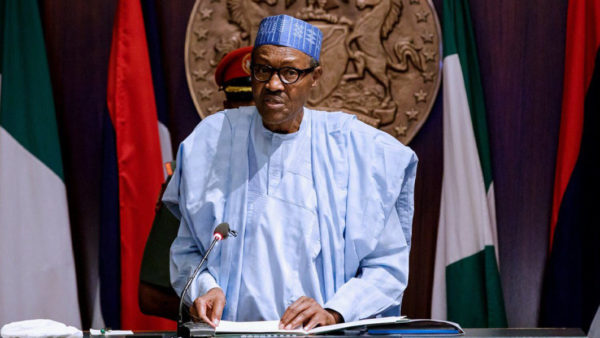President Muhammadu Buhari has revealed why he has yet to sign the Electoral (Amendment) Bill, 2018 which was passed by the National Assembly.
The reasons of the President were listed in a letter to the Senate in which he said that the timing of the Bill is a cause of concern for him.
President Buhari’s letter, which was read to the Assembly by Senate President Bukola Saraki, read: “Pursuant to Section 58 (4) of the Constitution of the Federal Republic of Nigeria 1999 (as amended), I hereby convey to the Senate, my decision on 6th December 2018 to decline Presidential Assent to the Electoral (Amendment) Bill, 2018 recently passed by the National Assembly.
“I am declining assent to the Bill principally because I am concerned that passing a new electoral bill this far into the electoral process for the 2019 general elections, which commenced under the 2015 Electoral Act, could create some uncertainty about the applicable legislation to govern the process.
“Any real or apparent change to the rules this close to the election may provide an opportunity for disruption and confusion in respect of which law governs the electoral process.
“This leads me to believe that it is in the best interest of the country and our democracy for the National Assembly to specifically state in the Bill that the Electoral Act will come into effect and be applicable to elections commencing after the 2019 General Elections.”
READ: Why party members must shun bickering, support Oshiomhole – APC UK
Buhari also added “It is also important for the following drafting amendments to be made to the Bill:
”A. Section 5 of the Bill, amending section 18 of the Principal Act should indicate the subsection to which the substitution of the figure ’30” for the figure “60” is to be effected.”
“B. Section 11 of the Bill, amending Section 36 should indicate the subsection in which the provision is to be introduced.
“C. Section 24 of the Bill which amends Section 85(1) should be redrafted in full as the introduction of the “electing” to the sentence may be interpreted to mean that the political parties may give 21 days’ notice of the .. intention to merge, as opposed to the 90 days provided in Section 84(2) of the Electoral Act which provides the provision for merger of political parties.”
“D. The definition of the term “Ward Collection Officer” should be revised to reflect a more descriptive definition than the capitalized and undefined term “Registration Area Collation Officer.”



Leave a Reply